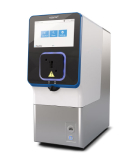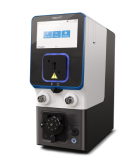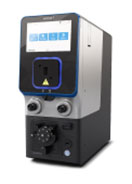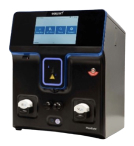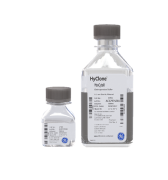Releases Details
Presentation of Positive Preclinical Data
Released : April 25, 2017 07:00
MaxCyte, Inc.
("MaxCyte" or the "Company")
MaxCyte, Inc. to Present Positive Preclinical Data for Sickle Cell Disease
Using MaxCyte's Proprietary GT® System, MaxCyte and its collaborators at the National Heart, Lung and Blood Institute (NHLBI) and National Institute of Allergy and Infectious Diseases (NIAID) demonstrated successful CRISPR-induced corrections of the mutation behind SCD in more than 30 percent of patient-derived B cells. The objective of this pre-clinical effort is to develop potential curative therapy based on "correcting" the faulty gene in SCD while concurrently addressing DNA mutation sites in non-corrected cells that further contribute to the disease in people living with SCD. In contrast, competing approaches focus on either external therapeutic gene addition using viral vectors (now in early clinical trials) or on creation of hereditary persistence of fetal hemoglobin (HPFH) mutations (preclinical research underway). Neither of these approaches impact the level of faulty HbS levels, which is the target of MaxCyte's approach and which are at the core of SCD.
"These data represent an extension of our previously published work achieving gene correction in X-linked chronic granulomatous disease, demonstrating the ability of our cGMP-compliant delivery platform to achieve robust, scalable, and a clinically relevant levels of gene correction in sickle cell disease patient-derived cells," said Doug Doerfler, Chief Executive Officer of MaxCyte, "We are excited by these results, and look forward to evaluating long-term data."
Data will be shared via a poster (Permanent Abstract Number: 642) at the ASGCT Annual Meeting with details as follows: Session: "Clinical-Meaningful Level CRISPR-Oligomer-Mediated Correction of Sickle Cell Disease (SCD) Using Non-viral, cGMP Compliance, Scalable and Closed System." Timing: Friday, May 12, 2017 at 5:45 - 7:45 p.m. ET
About Sickle Cell Disease
According to the NHLBI, the term sickle cell disease (SCD) describes a group of inherited red blood cell disorders. Patients with SCD have abnormal hemoglobin, called hemoglobin S or sickle hemoglobin, in their red blood cells. Hemoglobin is a protein in red blood cells that carries oxygen throughout the body. Those who have SCD inherit two abnormal hemoglobin genes, one from each parent. In all forms of SCD, at least one of the two abnormal genes cause a person's body to make hemoglobin S.
Sickle cell disease is a life-long illness. The severity of the disease varies widely from person to person. In high-income countries like
About MaxCyte
MaxCyte (LSE: MXCT, MXCR) is a US-based global company dedicated to driving the acceleration of the discovery, development, manufacturing and commercialization of next-generation, cell-based medicines. The Company provides its patented, high-performance cell engineering platform to biopharmaceutical partners engaged in drug discovery and development, biomanufacturing, and cell therapy, including gene editing and immuno-oncology. With its robust delivery platform, MaxCyte's team of scientific experts helps its partners to unlock their product potential and solve problems. This platform allows for the engineering of nearly all cell types, including human primary cells, with any molecule, at any scale. It also provides a high degree of consistency and minimal cell disturbance, thereby facilitating rapid, large-scale, clinical and commercial grade cell engineering in a non-viral system and with low-toxicity concerns. The Company's cell-engineering platform is FDA-accredited, providing MaxCyte's customers and partners with an established regulatory path to commercialize cell-based medicines. MaxCyte is also developing CARMA, its proprietary, breakthrough platform in immuno-oncology, to rapidly manufacture CAR therapies for a broad range of cancer indications, including solid tumors where existing CAR-T approaches face significant challenges. For more information, visit http://www.maxcyte.com/
|
|
|
This information is provided by RNS
